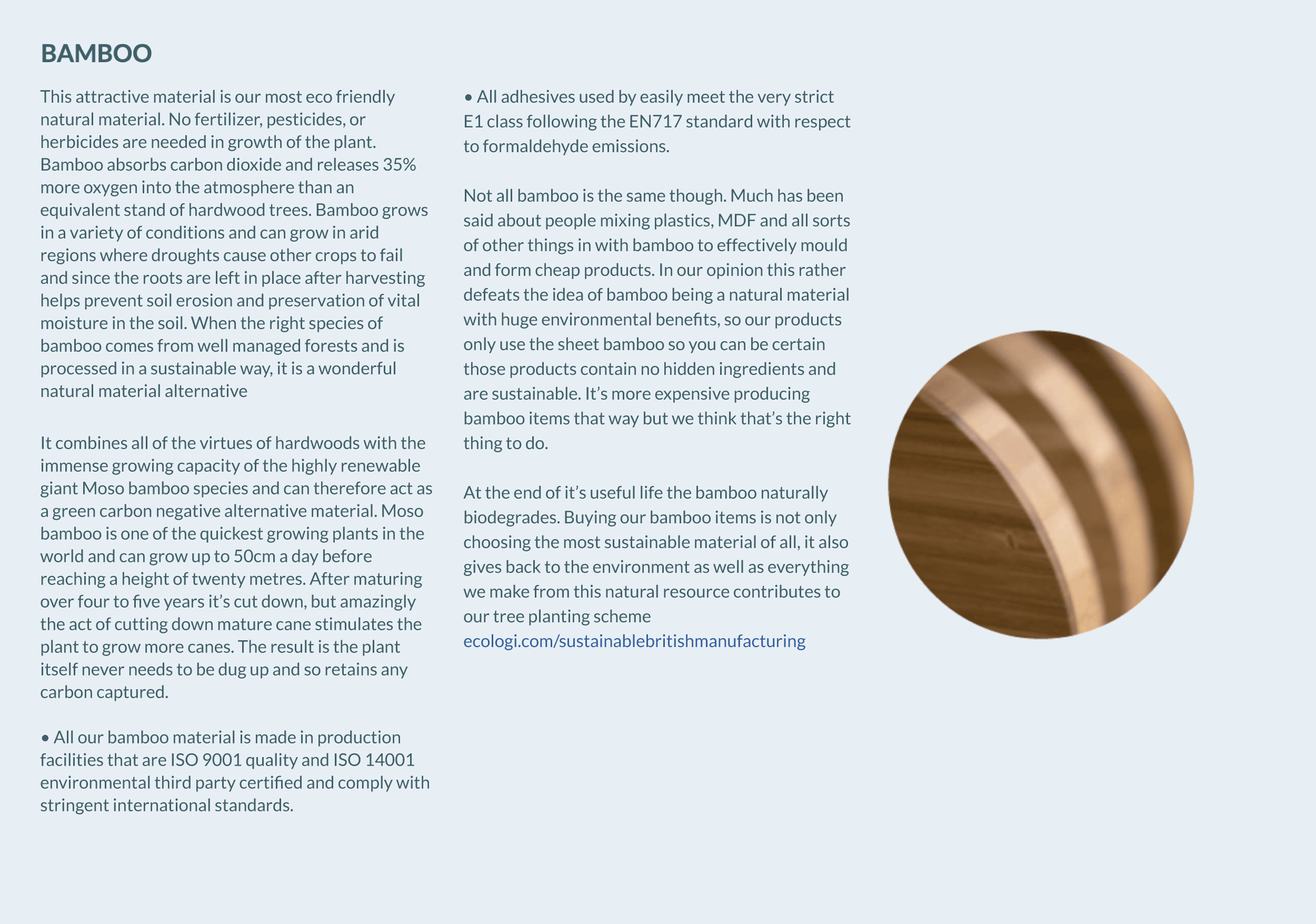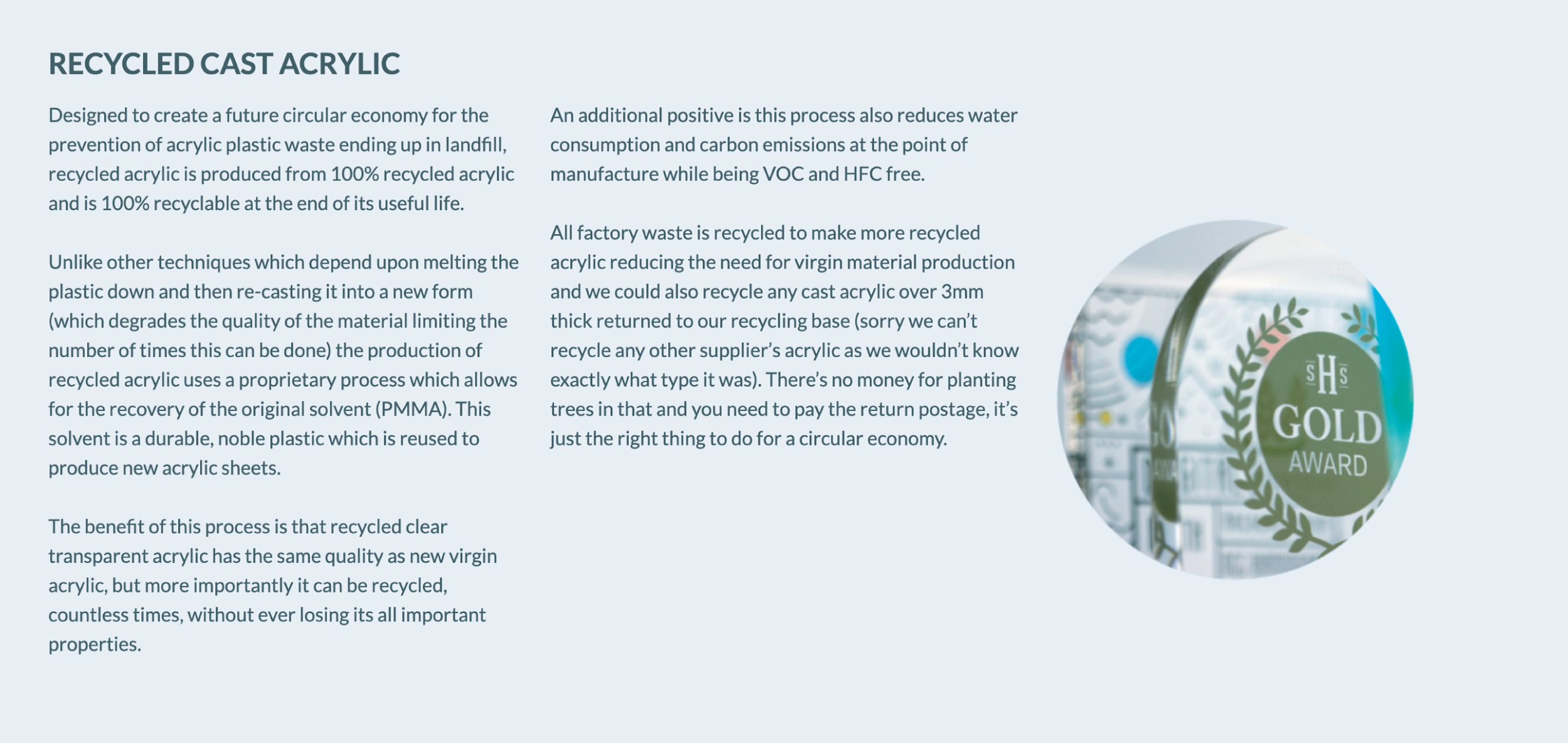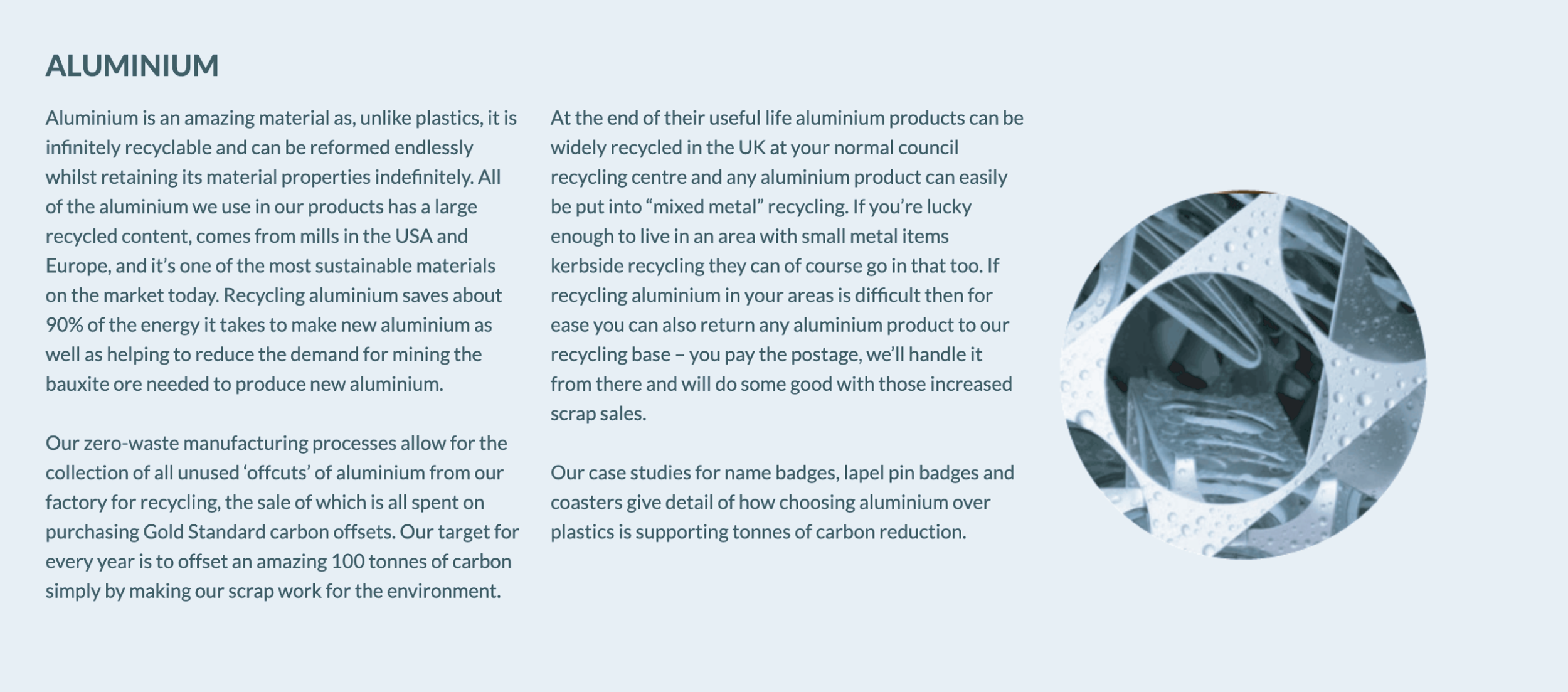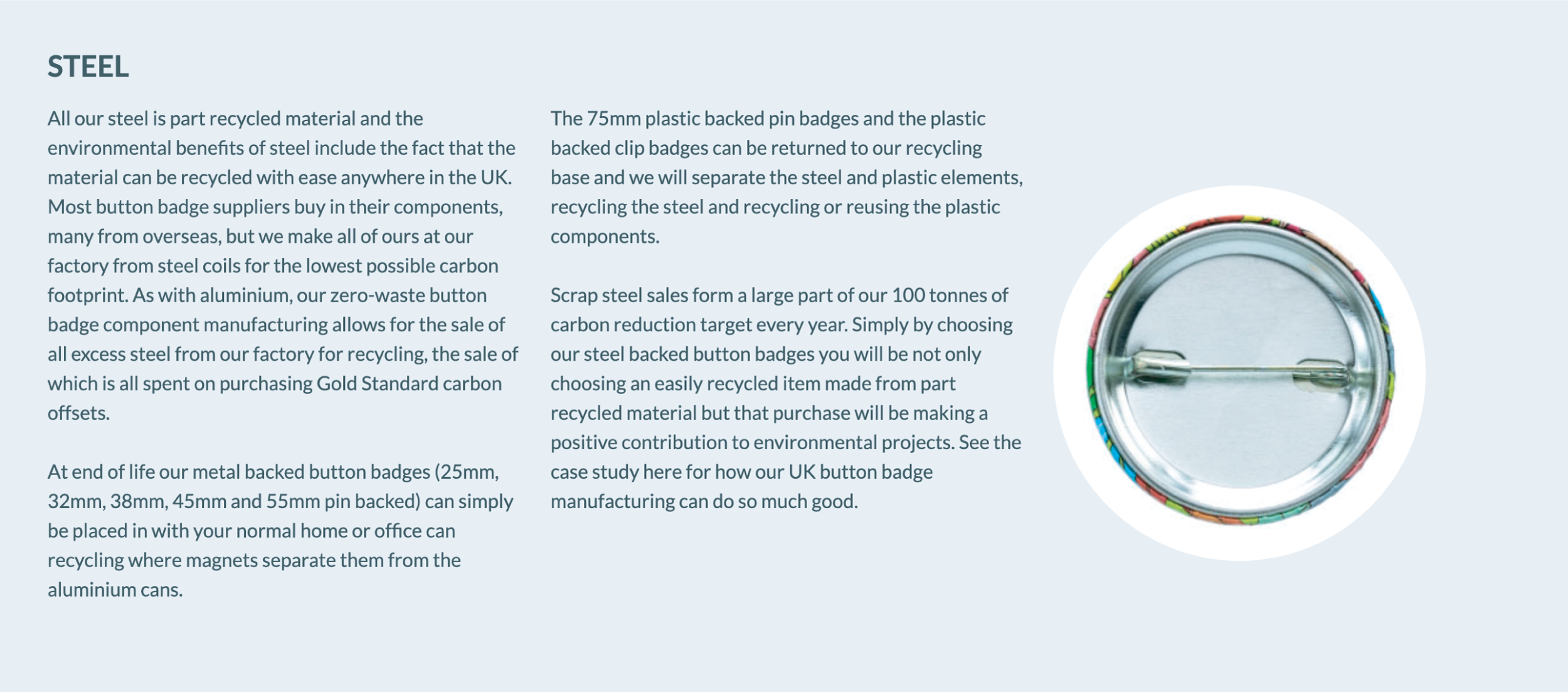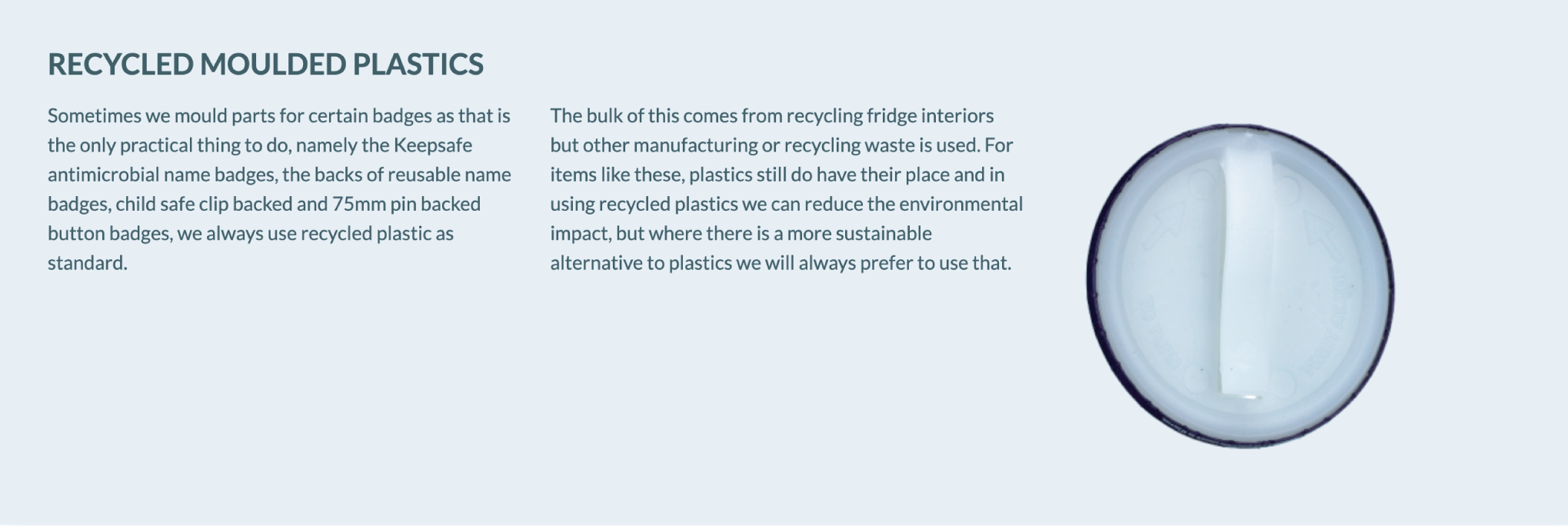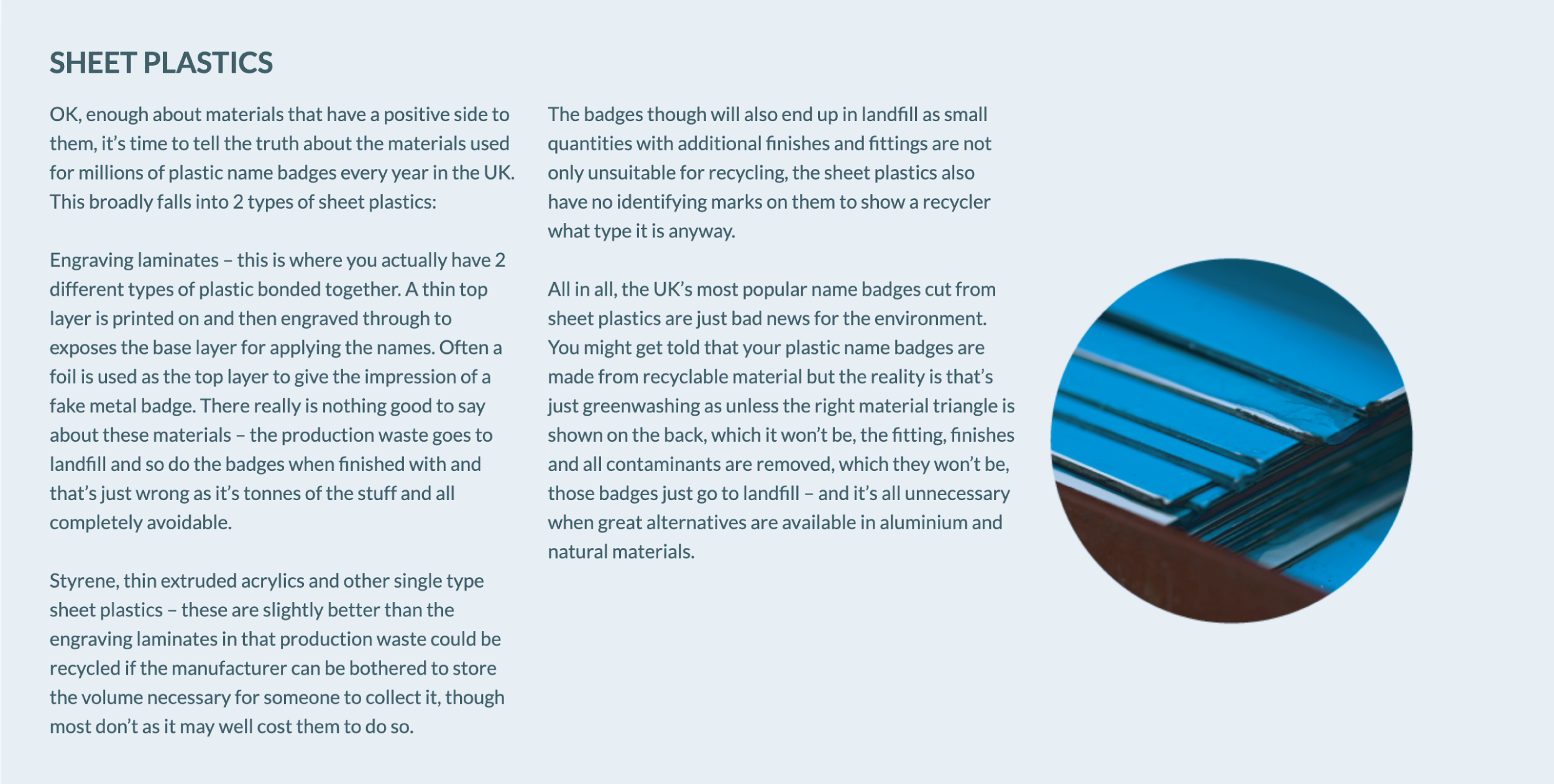Our Sustainable Materials
We will research and promote the use of the more sustainable materials available, paying a premium where necessary for suppliers and materials with proven environmental credentials.
We minimise the waste we produce and recycle what we can wherever possible. We will prefer the use of materials where all manufacturing waste has a secondary use or will be recycled, such as products made from aluminium, steel and wood. We have reduced our paper usage by approx 75% since 2018 and will continue to develop our internal technology to run our factory as paper free as possible.
